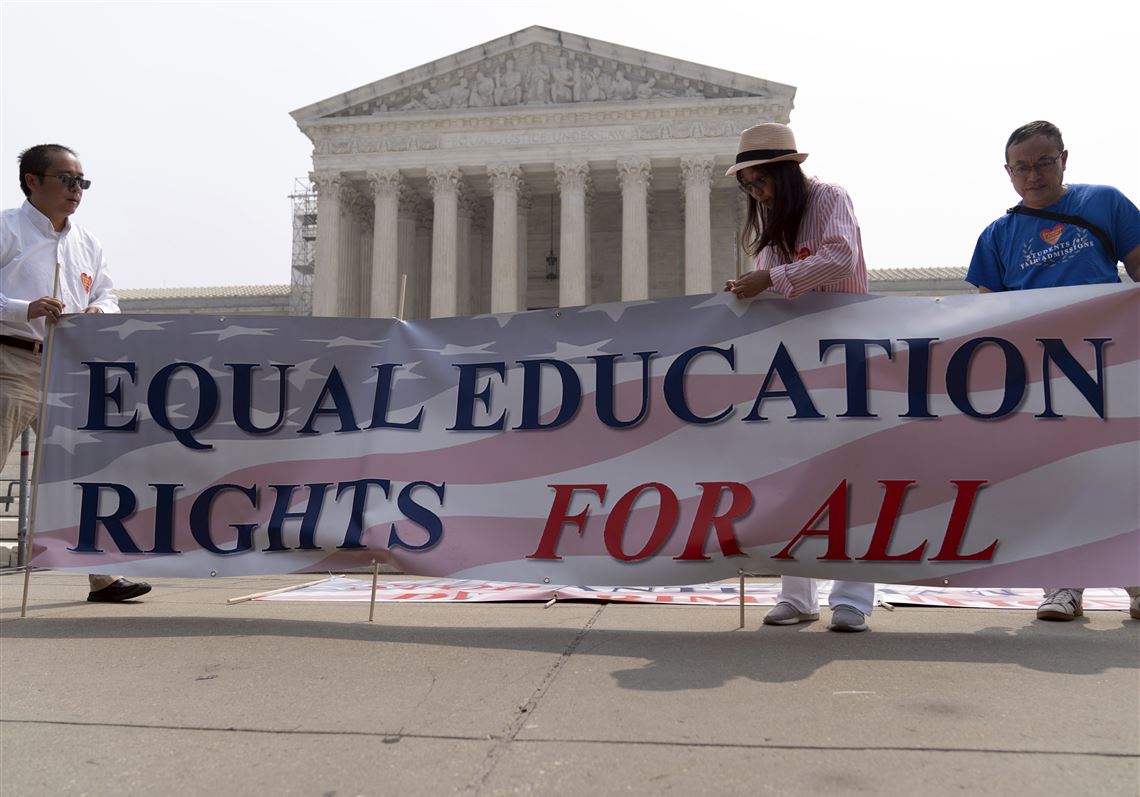
Supreme Court Strikes Down Affirmative Action
The Dobbs decision, which rightfully returned the abortion issue back to the states ending over 40 years of government sanctioned infanticide which wrought untold and immeasurable consequences of moral and societal degradation on our nation. A major win in the fight for the sanctity of the basic human right to life.
Now another stalwart of the social engineers and their indoctrinated minions falls to the rule of the supreme law of the land. The landmark decision upholds the Constitutional doctrine of individual sovereignty and the inherent equality of all humanity endowed by our Creator and enshrined in the foundation of our nation’s unique exceptionalism.

The Supreme Court has declared affirmative action in college admissions unconstitutional, upholding the principles enshrined in the Fourteenth Amendment of the United States Constitution. The Constitutionality of the Supreme Court’s affirmative action ruling highlights its alignment with the Fourteenth Amendment’s Equal Protection Clause. By analyzing the implications of race-based admissions policies at institutions like Harvard and UNC, the decision safeguards the individual sovereignty and equality envisioned by the framers of the Constitution.

The Fourteenth Amendment, specifically its Equal Protection Clause, serves as the cornerstone of the Supreme Court’s decision. Section 1 of the amendment guarantees that no state shall deprive any person of the equal protection of the laws. By considering race as a determining factor in college admissions, universities violated this constitutional guarantee. The decision underscores the principle that the Constitution is written for individuals, devoid of specific racial or ethnic categorizations.
Affirmative action programs, despite their purported goals of achieving diversity and rectifying historical injustices, have inadvertently perpetuated inequality. These programs have led to the categorization of individuals based on immutable characteristics, creating an unequal playing field. The Supreme Court rightly recognizes that judging a person’s potential and abilities according to race is unconstitutional. Such practices hinder the individual’s right to pursue their goals without government intervention or favoritism.

The ruling in the Harvard and UNC cases unveils the fallacy that race-conscious admissions benefit marginalized communities. Asians, for instance, faced discriminatory practices that required them to downplay their heritage to maximize their chances of admission. This reveals how affirmative action programs often resulted in the denial of high-achieving individuals based on their race. The Court’s decision firmly establishes that the equal protection of the laws is not achieved through the indiscriminate imposition of inequalities.


The dissenting opinions of Justices Sotomayor and Jackson fail to address the constitutional implications of race-based admissions adequately. Justice Roberts rightly points out the flaws in their arguments, emphasizing that a judiciary that picks winners and losers based on the color of their skin goes against the principles of equality. The Chief Justice’s observations shed light on the danger of perpetuating racial castes and division within society, rather than promoting a cohesive and inclusive environment.

Much to the chagrin of those who would use race as a political tool to control communities and maintain the power of their own prejudices, the decision affirms the Constitution’s commitment to equal protection under the law. By upholding the principles of the Fourteenth Amendment, the ruling serves as a significant victory for the rule of law and ensures that individuals are not judged based on their race, but rather on their individual merits and abilities.
Sources:
The Supreme Court ends Affirmative Action – by Techno Fog
Nineteen thoughts on the affirmative action case
The Constitution: Amendments 11-27 | National Archives
MSNBC Proves Clarence Thomas’ Point On Affirmative Action

